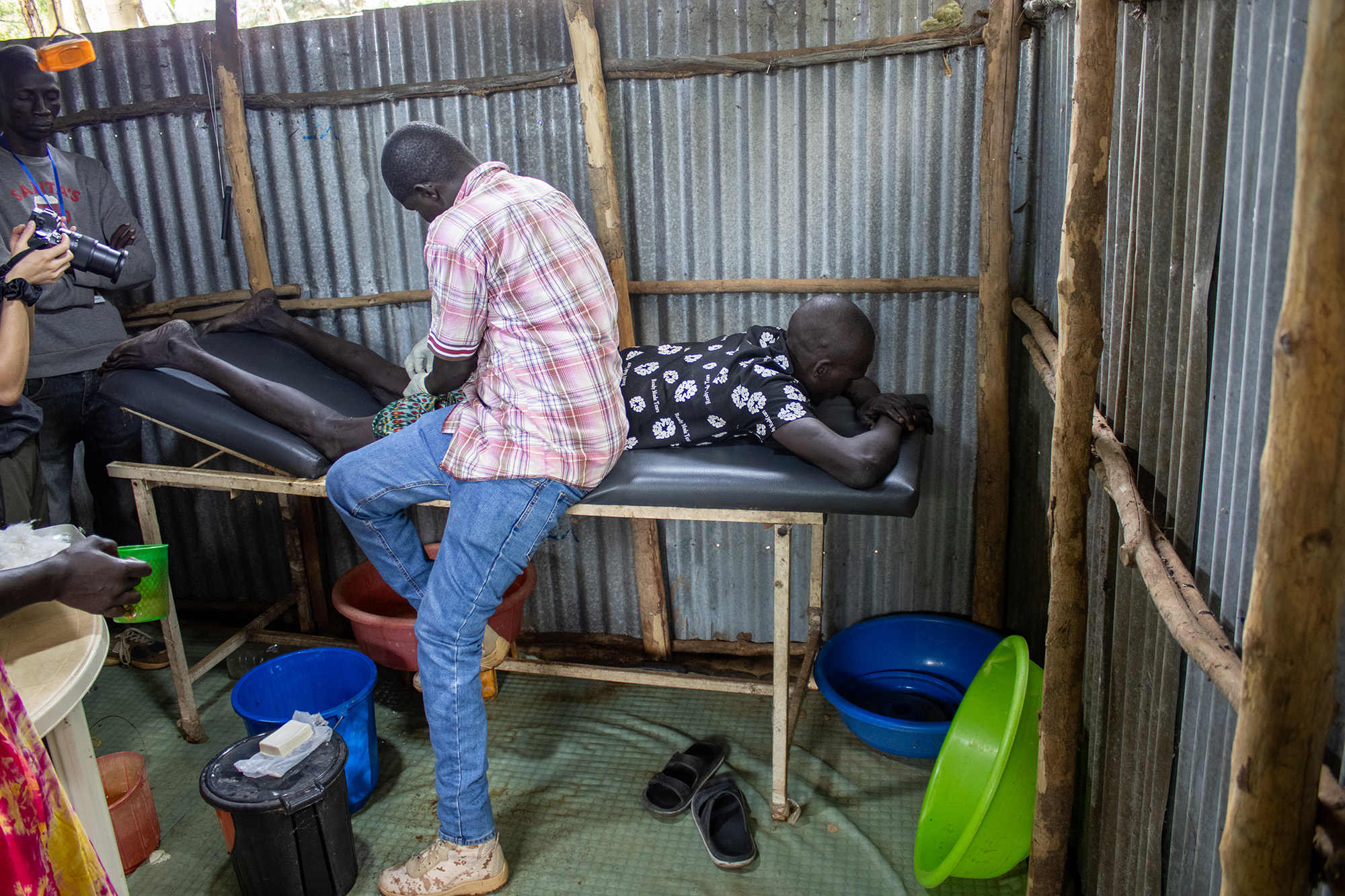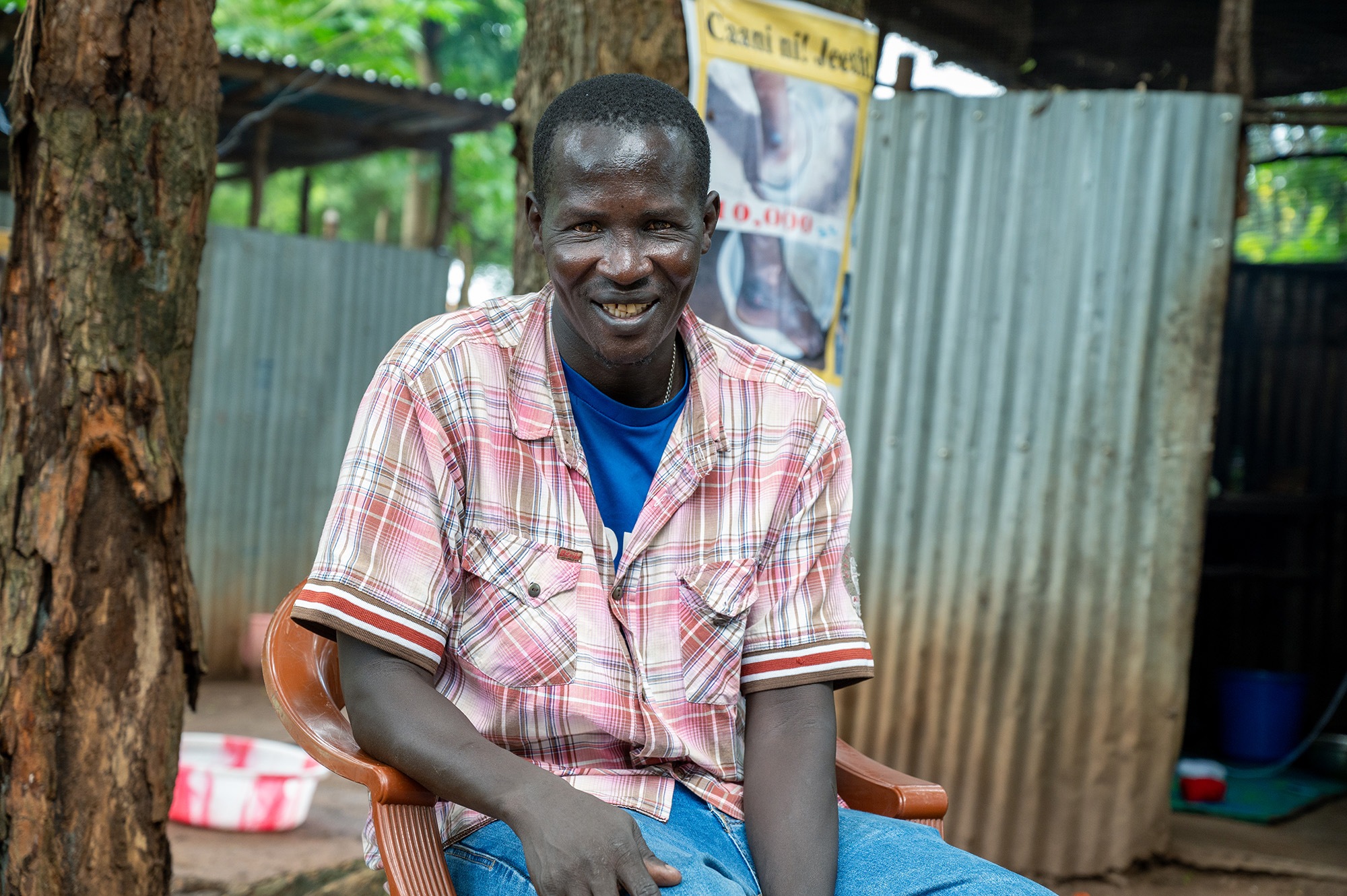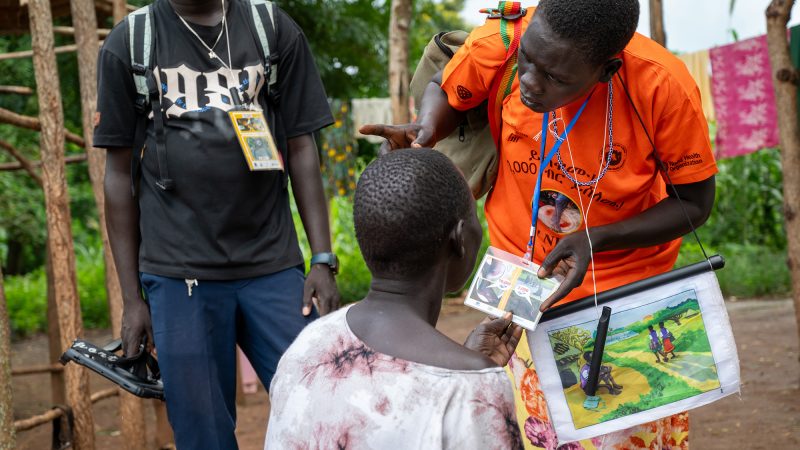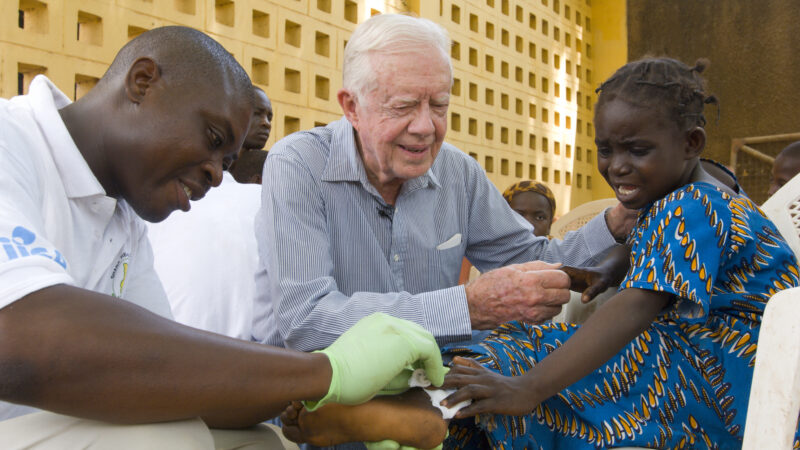A Dedicated Trio
So many others I met shared his passion and dedication.
Abang Akway, a 22-year-old volunteer, visits each household in her village of Umaha three times a week, carrying a fabric flipbook featuring colorful drawings that depict Guinea worm transmission and symptoms to make sure her neighbors remain vigilant.
Akway had a Guinea worm when she was a child. She told me she still recalls the Carter Center staffer who took her to the nearest case containment center on his bicycle — a ride that took two hours — and she doesn’t want anyone else to suffer as she did.
I also met Chiel Otong, who is responsible for applying a mild larvicide in ponds in his community. He’s been at the job for five years, working with community members who are paid a day rate to remove grass and muck before the pond is treated.
Otong and his teams clean and re-treat each pond every 28 days — in punishing heat or torrential rain — because that’s what it takes to protect the drinking water.
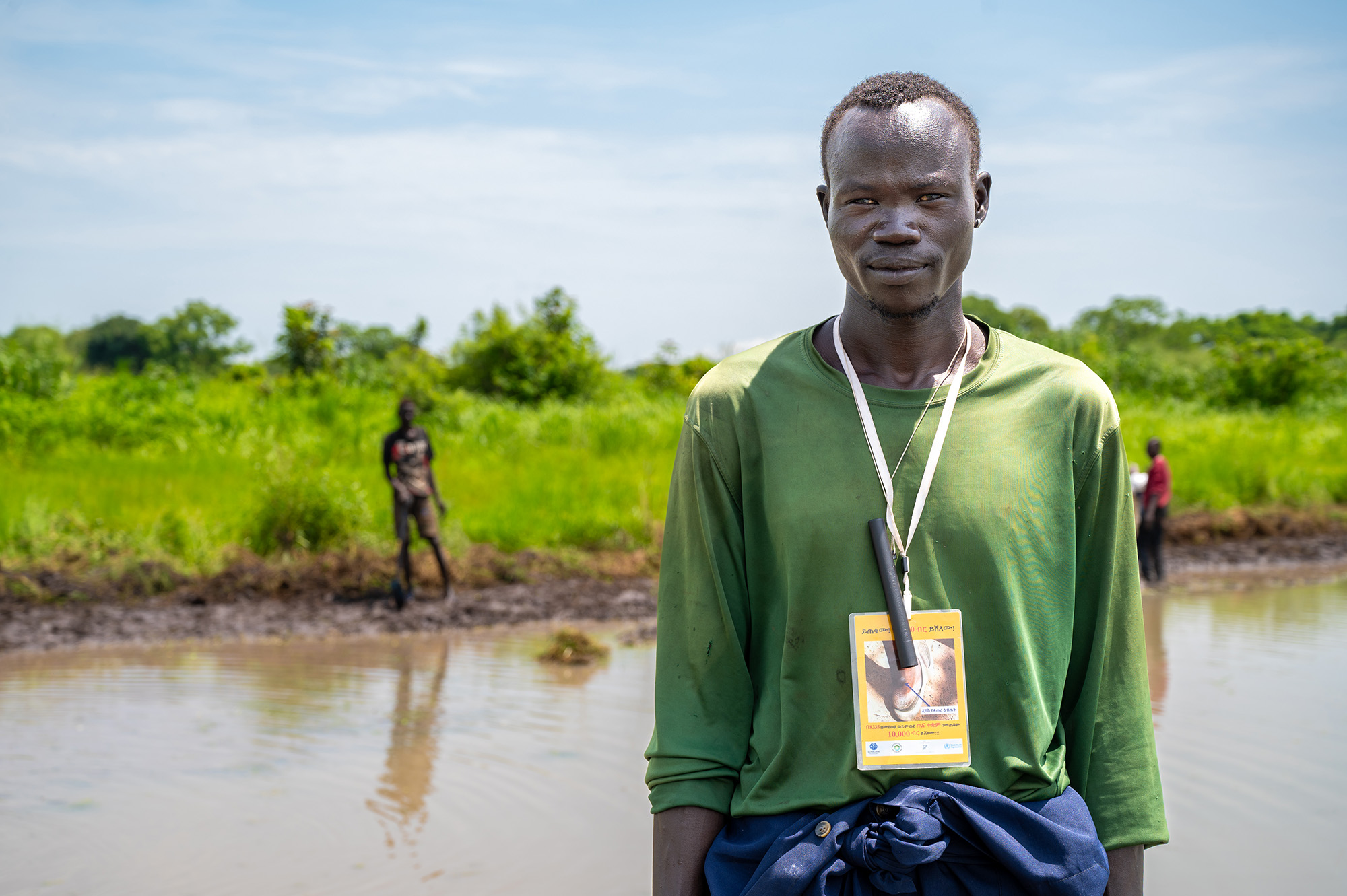
And then there was Joseph Okello, a field officer whose duties include working on the proactive dog tethering program in the village of Athete. He doesn’t even need to consult his notes to tell you that Athete is home to 53 dogs and 43 dog owners. The Carter Center helps build and maintain “tukuls” — the word for doghouses in the Øt Gwök language — plus dog food, veterinary services, and fencing for a dog park where the animals can play safely off leash.
All this ensures that the dogs don’t run free, drinking potentially contaminated water and a year later re-contaminating it when they seek relief from the pain of a Guinea worm by soaking a paw beneath its cool surface.
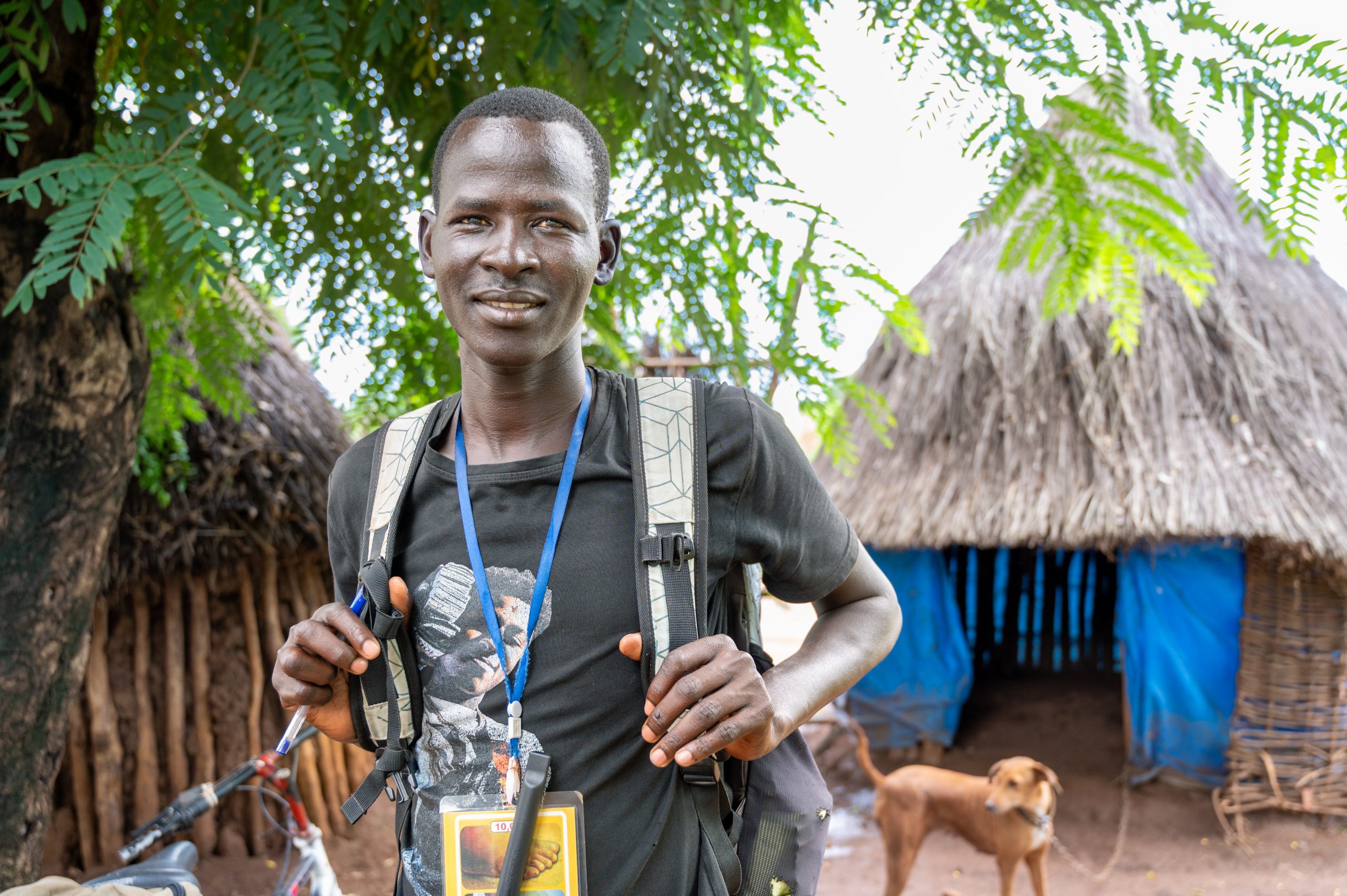
‘Carter Center Staff Are There’
And these are only a few of the vast network of staff and volunteers working in just two districts in western Ethiopia, near the South Sudan border. There are more in other districts in other parts of the country — and more still in the capital of Addis Ababa, where they work hand in hand with staff in Ethiopia’s Ministry of Health.
All equally dedicated. All using innovative yet simple tactics to fight a disease that can’t be wiped out by a pill or vaccine.
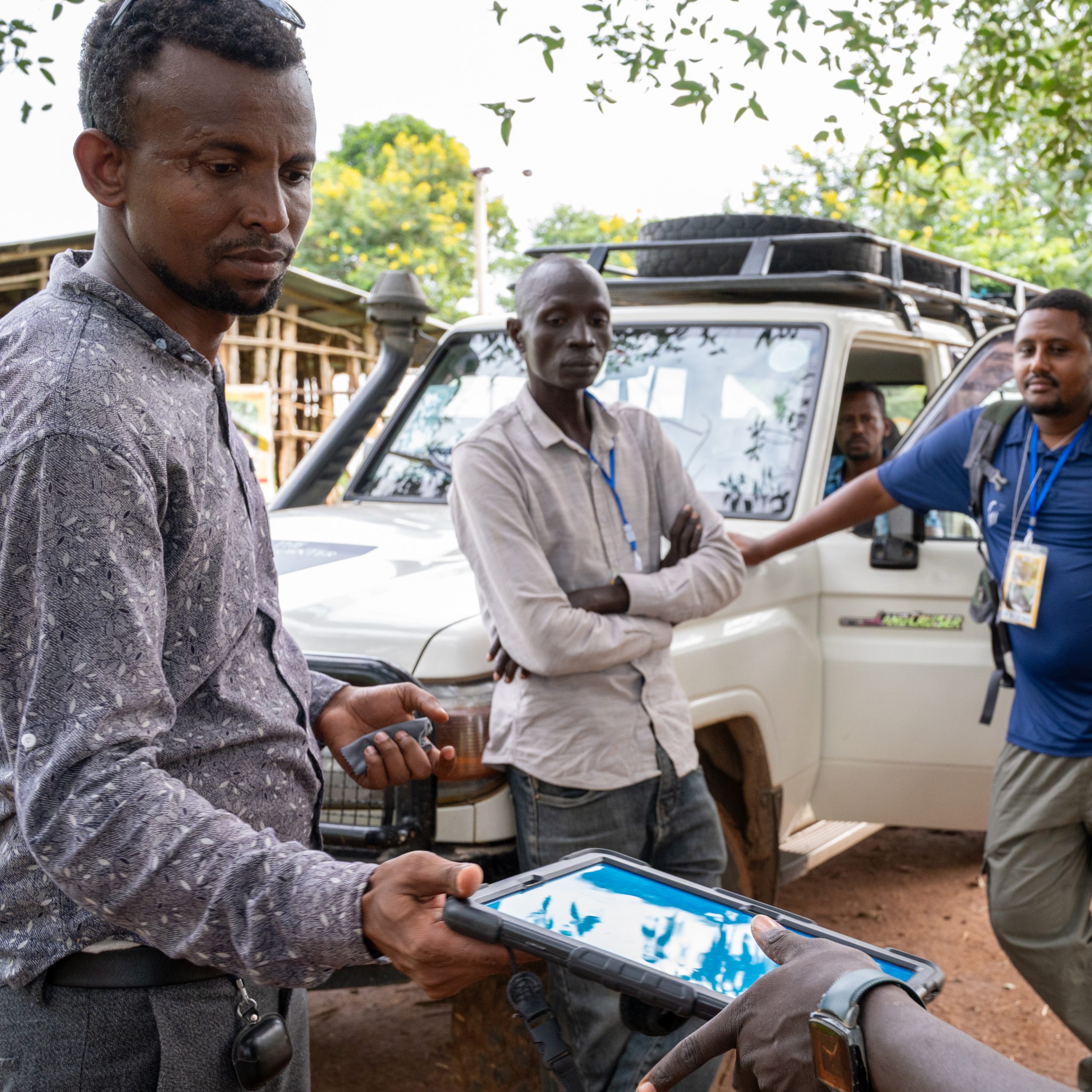
Yeshitila Mulugeta, a behavioral change communications officer now based in Addis Ababa, is tasked with helping ensure people do the things that keep them safe — like drinking through properly cleaned pipe filters and keeping infected people and animals away from water sources.
Mulugeta once held Ogebo’s job as Gog’s case center containment manager, and his face still bears the scars from motorbike accidents he had on the job.
Guinea worm work is hard, he said, but rewarding. And it has been successful because of the relationships the Carter Center team has built in communities. They show up when and where they’re needed, no matter the difficulty.
“Carter Center staff will not say, ‘It is raining.’ They will not say, ‘The road is not okay.’ They will not say, ‘I have to have a vehicle to go somewhere,’” he told me. “If the people are there, Carter Center staff are there.”
That’s why I came away feeling uplifted rather than discouraged. With commitment like that, how can the Guinea worm’s days not be numbered?
Related Stories
Global Impact Starts with You
Your support sustains the Carter Center's mission of waging peace, fighting disease, and building hope around the world.

